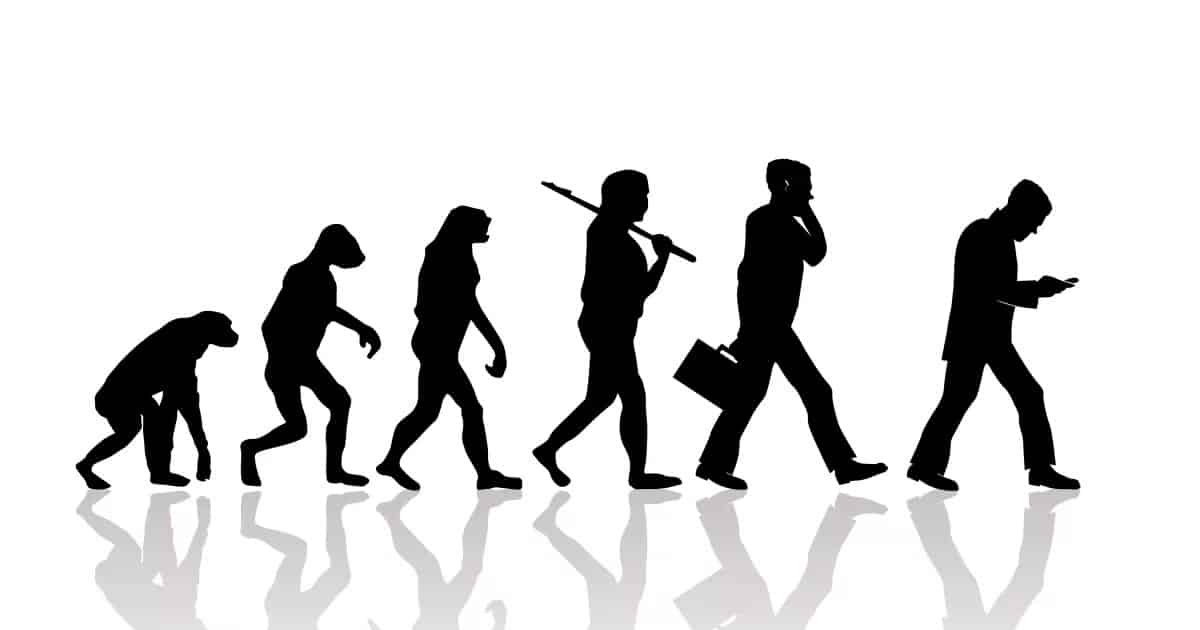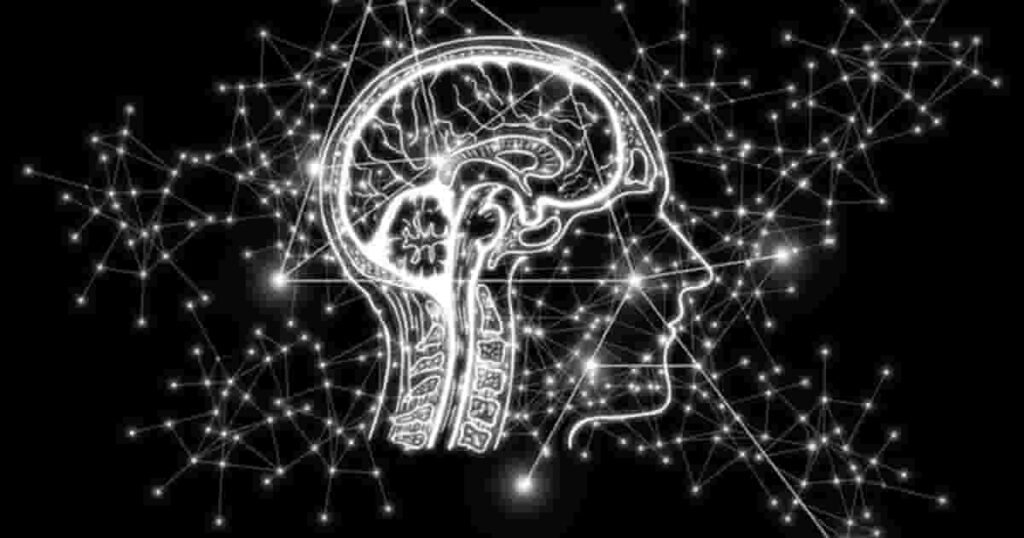Evolutionary psychology, a fascinating and sometimes controversial field, seeks to understand the human mind through the lens of evolution. It proposes that our brains, like our bodies, have been shaped by natural selection over millions of years to solve adaptive problems faced by our ancestors. These problems, critical for survival and reproduction, have molded our cognitive architecture, driving us to think, feel, and behave in ways that once enhanced our chances of passing on our genes.
This blog post will delve into the core principles of evolutionary psychology, exploring its key concepts, methodologies, strengths, criticisms, and practical applications. Prepare to embark on a journey into the deep-seated evolutionary roots of human behavior and cognition.
The Foundation: Natural Selection and Adaptation
At the heart of evolutionary psychology lies the theory of natural selection, championed by Charles Darwin. This fundamental principle posits that traits which enhance an organism’s survival and reproduction in a given environment are more likely to be passed on to future generations. Over time, this process leads to adaptations – inherited characteristics that improve an organism’s ability to thrive.
Evolutionary psychology extends this concept to the brain, arguing that the human mind is not a blank slate, but rather a collection of evolved psychological mechanisms – specialized cognitive programs designed to solve specific adaptive problems. These problems could range from finding food and shelter to avoiding predators, choosing mates, and raising offspring.
Key Principles of Evolutionary Psychology
To understand evolutionary psychology, it’s crucial to grasp its core principles:
- Domain Specificity: Evolutionary psychologists argue against the notion of a general-purpose learning mechanism. Instead, they propose that the mind is modular, comprised of numerous domain-specific modules, each designed to handle a particular type of information or problem. For example, a module for language acquisition might be distinct from a module for facial recognition. This specialization allows for efficient and effective problem-solving in different domains.
- Universality of Human Nature: While culture plays a significant role in shaping behavior, evolutionary psychology emphasizes the underlying universality of human nature. It suggests that certain psychological adaptations are shared by all humans, regardless of their cultural background. These universal tendencies reflect the common adaptive challenges faced by our ancestors throughout evolutionary history.
- Environment of Evolutionary Adaptedness (EEA): The EEA refers to the environmental conditions that shaped a particular adaptation. Understanding the EEA is crucial for understanding the function of a psychological mechanism. For example, the EEA for human social behavior was the small-group environment of hunter-gatherer societies. Modern environments, with their large populations and anonymous interactions, may trigger these evolved mechanisms in maladaptive ways.
- Mismatch Theory: This theory posits that some of our evolved psychological mechanisms may be maladaptive in modern environments because the world has changed too rapidly for natural selection to keep pace. For instance, our innate preference for high-calorie foods, once beneficial for survival in times of scarcity, can now lead to obesity and related health problems in environments with abundant food.
- Functional Analysis: Evolutionary psychologists employ functional analysis to understand the purpose of a psychological trait or behavior. They ask: What problem did this trait solve in the EEA? How did it enhance survival and reproduction? By understanding the function of a trait, we can gain insights into its underlying mechanisms and its role in human behavior.
Methodologies Used in Evolutionary Psychology
Evolutionary psychologists employ a variety of methodologies to investigate the evolutionary roots of human behavior:
- Cross-Cultural Studies: Comparing behavior across different cultures can reveal universal patterns that may reflect evolved psychological mechanisms. If a behavior is observed in diverse cultures, it’s more likely to be rooted in human nature than shaped by specific cultural norms.
- Studies of Genetic Heritability: Investigating the heritability of psychological traits can provide evidence that these traits are influenced by genes, and therefore potentially subject to natural selection. Twin studies and adoption studies are common methods for assessing heritability.
- Comparative Studies: Comparing human behavior to that of other animals, particularly primates, can shed light on the evolutionary origins of certain traits. By studying the behavior of our closest relatives, we can gain insights into the ancestral conditions that shaped our own behavior.
- Neuroimaging: Techniques like fMRI and EEG can be used to identify brain regions that are associated with specific psychological mechanisms. This can help to map the neural circuitry underlying evolved cognitive functions.
- Computer Modeling: Computer simulations can be used to test evolutionary hypotheses and explore the potential dynamics of evolutionary processes. These models can help to understand how different selection pressures might have shaped the evolution of the human mind.
Examples of Evolutionary Psychology in Action
Let’s examine some concrete examples of how evolutionary psychology explains various aspects of human behavior:
- Mate Selection: Evolutionary psychologists have proposed that men and women have different mate preferences because they faced different reproductive challenges in the EEA. Men, who can potentially father many offspring, are predicted to prioritize youth and attractiveness in a partner, as these cues are associated with fertility. Women who invest more heavily in offspring are predicted to prioritize resources and status in a partner, as these cues are associated with the ability to provide for their children. This theory is supported by cross-cultural research on mate preferences.
- Parental Investment: Evolutionary psychology predicts that parents will invest more in offspring who have a higher likelihood of survival and reproduction. This explains why parents tend to invest more in healthier children and why step-parents may sometimes invest less in their stepchildren than in their biological children.
- Cooperation and Altruism: While seemingly contradictory to the “survival of the fittest” principle, cooperation and altruism can be explained through the lens of kin selection and reciprocal altruism. Kin selection proposes that we are more likely to help our relatives because they share our genes. Reciprocal altruism suggests that we are more likely to help those who are likely to reciprocate in the future. These mechanisms can explain the evolution of cooperative behavior within groups.
- Fear and Phobias: Evolutionary psychology suggests that we are predisposed to fear things that posed a threat to our ancestors, such as snakes, spiders, and heights. This “preparedness” allows us to learn these fears more quickly and easily than fears of more recent dangers, like cars or electrical outlets.
- Jealousy: Evolutionary psychologists argue that men and women experience jealousy for different reasons. Men are predicted to be more upset by sexual infidelity, as it raises the possibility of paternal uncertainty. Women are predicted to be more upset by emotional infidelity, as it threatens the loss of their partner’s resources and support.
Criticisms of Evolutionary Psychology
Despite its insights, evolutionary psychology has faced significant criticism:
- Just-So Stories: Critics argue that evolutionary psychology is prone to generating “just-so stories” – post hoc explanations that are difficult to test empirically. They contend that it’s easy to come up with evolutionary explanations for any behavior, even contradictory ones, without strong evidence.
- Genetic Determinism: Some critics accuse evolutionary psychology of promoting genetic determinism, the idea that genes rigidly determine behavior. Evolutionary psychologists generally acknowledge the importance of environmental influences, but critics argue that the emphasis on genetics can downplay the role of culture and learning.
- Lack of Falsifiability: Some argue that many evolutionary psychology hypotheses are difficult or impossible to falsify, making them untestable by scientific methods.
- Social and Political Implications: Critics raise concerns about the potential for evolutionary psychology to be used to justify social inequalities or harmful stereotypes. For example, some fear that evolutionary explanations for gender differences could be used to justify sexism.
- Difficulty in Reconstructing the EEA: Accurately reconstructing the environmental conditions that shaped our ancestors is a challenging task. Critics argue that our understanding of the EEA is too limited to draw firm conclusions about the evolution of psychological mechanisms.
Addressing the Criticisms: A Nuanced Perspective
While the criticisms of evolutionary psychology are valid and important, they don’t necessarily invalidate the field as a whole. Many evolutionary psychologists are actively working to address these concerns:
- Developing Testable Hypotheses: Evolutionary psychologists are increasingly focusing on developing testable hypotheses that can be evaluated using rigorous scientific methods. This includes using experimental designs, cross-cultural comparisons, and neuroimaging techniques to gather empirical evidence.
- Acknowledging the Role of the Environment: Evolutionary psychologists recognize that genes and environment interact in complex ways to shape behavior. They emphasize that evolved psychological mechanisms are not deterministic, but rather flexible and responsive to environmental cues.
- Addressing Social Implications: Evolutionary psychologists are increasingly aware of the potential social and political implications of their research. They are actively working to communicate their findings in a responsible and nuanced way, and to avoid perpetuating harmful stereotypes.
- Integrating Evolutionary Psychology with Other Disciplines: Evolutionary psychology is increasingly being integrated with other disciplines, such as neuroscience, developmental psychology, and social psychology. This interdisciplinary approach can provide a more complete and nuanced understanding of human behavior.
Practical Applications of Evolutionary Psychology
Despite the criticisms, evolutionary psychology has the potential to be applied to a wide range of practical problems:
- Understanding Mental Health: Evolutionary psychology can provide insights into the causes of mental disorders. For example, it can help to explain why we are prone to anxiety and depression in modern environments that are very different from the EEA.
- Improving Education: Evolutionary psychology can inform educational practices by suggesting how to design learning environments that are more compatible with our evolved cognitive abilities.
- Promoting Health and Well-being: Evolutionary psychology can help us to understand the evolutionary roots of unhealthy behaviors, such as overeating and sedentary lifestyles, and to develop interventions that are more effective at promoting health and well-being.
- Improving Social Relationships: Evolutionary psychology can provide insights into the dynamics of social relationships, such as romantic relationships, friendships, and family relationships. This can help us to understand the causes of conflict and to develop strategies for building stronger and more satisfying relationships.
- Understanding Consumer Behavior: Evolutionary psychology can be used to understand why we are drawn to certain products and marketing strategies. This can help businesses to design more effective marketing campaigns and to develop products that better meet consumer needs.
Conclusion: A Powerful Lens for Understanding the Human Mind
Evolutionary psychology provides a powerful lens for understanding the human mind and behavior. While it is not without its challenges and criticisms, it offers valuable insights into the evolutionary roots of our cognitive abilities, emotions, and social interactions. By understanding the adaptive problems that our ancestors faced, we can gain a deeper appreciation for the complexities of the human condition and develop more effective strategies for addressing the challenges of modern life.
Evolutionary psychology is a continuously evolving field, and as research progresses and methodologies refine, we can expect even more profound insights into the workings of the human mind. Its focus on the “why” behind our behavior, rooted in our evolutionary past, makes it an invaluable tool for navigating the complexities of the human experience and shaping a better future.
30 FAQs based on Evolutionary Psychology
Here are 30 frequently asked questions (FAQs) about evolutionary psychology:
1. What is evolutionary psychology?
Evolutionary psychology is a theoretical approach that explains human behavior and mental processes in terms of evolutionary adaptations and the survival of our ancestors’ genes.
2. How does evolutionary psychology explain human behavior?
Evolutionary psychology suggests that many human behaviors are influenced by evolved psychological mechanisms shaped by natural selection to solve problems our ancestors faced in their environment.
3. What are some key concepts in evolutionary psychology?
Key concepts include natural selection, sexual selection, adaptations, fitness, reproductive success, and the notion of the “selfish gene.”
4. Who are the primary figures in the development of evolutionary psychology?
Key figures include Charles Darwin, who developed the theory of evolution, and more contemporary psychologists like Leda Cosmides, John Tooby, and David Buss, who have furthered the field.
5. How does evolutionary psychology differ from traditional psychology?
While traditional psychology often focuses on individual differences and immediate causes of behavior, evolutionary psychology looks at how evolutionary processes shape behavior and cognition over long periods.
6. What role does natural selection play in evolutionary psychology?
Natural selection is the process through which traits that enhance survival and reproduction become more common over generations. Evolutionary psychology applies this concept to understanding human behavior.
7. What is sexual selection?
Sexual selection refers to the process by which certain traits increase an individual’s chances of attracting mates and reproducing, leading to the evolution of specific behavioral and physical characteristics.
8. How does evolutionary psychology explain emotions?
Emotions are viewed as adaptations that have evolved to facilitate social interactions, promote decision-making, and provide cues for survival, enhancing fitness in various contexts.
9. What is the “mismatch theory” in evolutionary psychology?
Mismatch theory suggests that many modern human behaviors and preferences are maladaptive responses to environments in which our ancestors evolved, leading to issues like anxiety, obesity, and depression.
10. How do evolutionary psychologists study human behavior?
They use a mix of methodologies, including comparative studies with other species, cross-cultural research, and psychological experiments to test hypotheses related to evolved traits.
11. Can evolutionary psychology explain altruism?
Yes, evolutionary psychology suggests that altruistic behaviors can evolve because they increase the likelihood of survival for relatives (kin selection) or enhance an individual’s reputation and social bonds (reciprocal altruism).
12. What is the role of genes in evolutionary psychology?
Genes play a crucial role by influencing predispositions toward certain behaviors and characteristics that have historically improved the chances of survival and reproduction.
13. How does evolutionary psychology address gender differences?
It argues that gender differences in behavior often arise from differing reproductive strategies; for example, women may prioritize resource acquisition due to greater parental investment, while men may seek multiple mating opportunities.
14. What is kin selection?
Kin selection is a principle that explains how behaviors that benefit relatives can increase an individual’s genetic success, as helping relatives increases the likelihood of shared genes being passed on.
15. How do evolutionary psychologists explain aggression?
Aggression may have evolved as a strategy for securing resources, protecting territory, or competing for mates, benefiting reproductive success in some contexts.
16. What is the “adaptive problem” concept?
Adaptive problems are challenges faced by our ancestors that required solutions to enhance survival and reproduction, such as finding food, avoiding predators, forming social bonds, and attracting mates.
17. How does evolutionary psychology view parenting?
It posits that parenting behaviors and investment strategies are influenced by evolutionary pressures, with parents engaging in behaviors that maximize the survival and reproductive success of their offspring.
18. What is the EEA (Environment of Evolutionary Adaptedness)?
The EEA refers to the ancestral environment in which many human traits and behaviors evolved, characterized by small social groups, foraging lifestyles, and specific ecological conditions.
19. How does culture interact with evolutionary psychology?
While evolutionary psychology emphasizes biological factors, it acknowledges that culture influences behavior, shaping how evolved predispositions are expressed in different environments.
20. What critiques does evolutionary psychology face?
Critics often argue that evolutionary psychology can be overly deterministic, relies on speculative hypotheses, and may not adequately account for cultural and environmental influences on behavior.
21. How does evolutionary psychology explain mating preferences?
It suggests that mating preferences reflect evolved desires for traits that indicate genetic quality, such as physical health, resources, and social status, varying between men and women due to different reproductive strategies.
22. What is the concept of “facultative adaptations”?
Facultative adaptations are flexible traits that can change in response to environmental conditions, allowing individuals to adjust their behavior to different contexts for enhanced fitness.
23. How do researchers test hypotheses in evolutionary psychology?
Researchers often use naturalistic observations, experimental designs, and cross-cultural comparisons to examine how behavior aligns with evolutionary predictions.
24. What role does the brain play in evolutionary psychology?
The brain is viewed as an organ that has evolved to solve problems faced by our ancestors, and its structure and function reflect adaptations that enhance survival and reproductive success.
25. How does attachment theory relate to evolutionary psychology?
Attachment theory aligns with evolutionary psychology by suggesting that strong emotional bonds between caregivers and infants enhance survival, as secure attachments lead to better care and protection.
26. Can evolutionary psychology inform mental health treatment?
Understanding the evolutionary basis of behaviors may help clinicians address reasons behind certain mental health issues, promoting insights into maladaptive behaviors and providing targeted interventions.
27. How does evolutionary psychology explain mate selection?
Mate selection is influenced by evolutionary factors such as attractiveness, social status, and resource availability, with individuals often seeking mates who will enhance their reproductive success.
28. What is the importance of fitness in evolutionary psychology?
Fitness refers to an individual’s ability to survive and reproduce. Psychological traits and behaviors are often evaluated based on how they enhance fitness in a specific environment.
29. How do evolutionary psychologists define “universal human behaviors”?
Universal human behaviors are actions and emotions that are expressed similarly across cultures, suggesting they have evolved as adaptive responses to common challenges faced by humans throughout history.
30. What is the future of evolutionary psychology?
The future may involve deeper integration of genetic research, advancements in neuroscience, and ongoing debates regarding the implications of evolutionary perspectives on human behavior in modern contexts.


